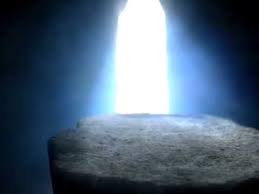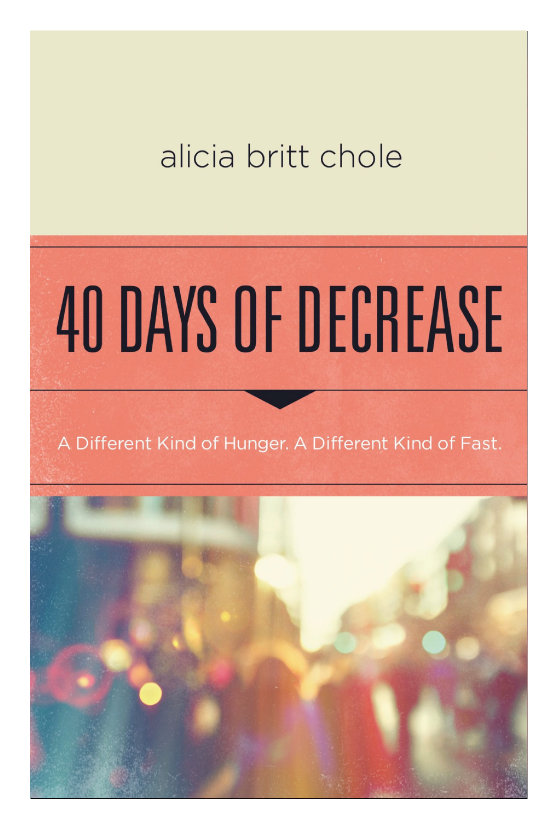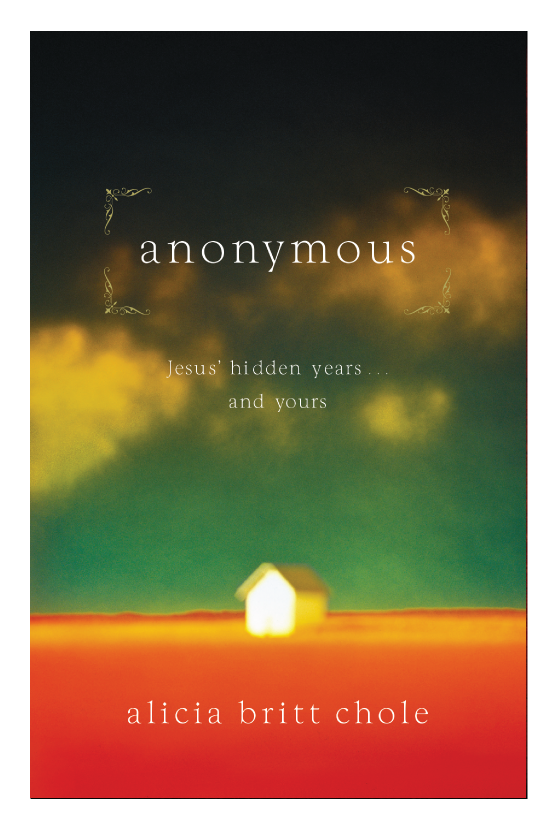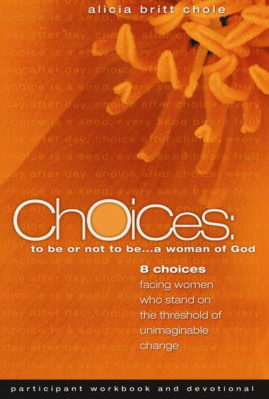
This, along with the reports I am receiving of churches preparing to use #40fasts across the country, in the U.K., Spain, and Australia, is a dream-come-true.
Methodist, Presbyterian, Independent, Baptist, Catholic, Greek Orthodox, non-denominational, Assemblies, Episcopal…believers and churches will be reflection on the same passages and entering into the same heart-fasts at the same time in preparation to live in awe of Jesus’ resurrection.
Wow.
So tonight as I prepared to write this week’s blog, I thought it might be helpful to share a bit from my studies on the ancient Christian practice of fasting before Resurrection Sunday.
From the oldest available manuscripts, it is clear that the early Church prepared to celebrate the Resurrection with a season of remembrance.
What that season looked like exactly is not entirely clear. The earliest mentions speak of one-day, two-day, and forty hour fasts. Somewhere around AD 325, the practice became more–but not entirely–uniform as a forty-day “communal focus upon the most disillusioning season of the first disciples’ lives.” (40 Days of Decrease, p. 8) Modern scholars now believe that this practice was probably the fusion of a separate forty-day fast for baptismal candidates and the Church’s shorter fast for Resurrection Sunday.
Protestant and Catholic traditions refer to this preparatory space in the Christian Calendar as Lent and, though the time frame is somewhat different, Orthodox believers call this space the Great Lent. The English word Lent (like the Anglo-Saxon word lectentid) carries the meaning of “springtime.” In Greek, Lent is tessarakosti, and in Latin, quadragesima, both of which emphasize the number forty, a number obviously rich in biblical significance. (ibid, p. 13-14)
Lovely. But…Why honor Lent today? Well, for me, the answer is two-fold:
I want to honor Jesus’ crucifixion and resurrection in a way that soaks into my soul and affects me year-round.
I find value in knowing that traditions like Lent connect me with believers around the globe and through the centuries.
It is good to not be alone.
It is good to remember that my generation did not start Christianity (which means that we probably will not be the death of Christianity as well) and that centuries of faithful souls who looked and spoke and acted differently than me laid a foundation that I now stand upon.
To the point, in practice and in history, Lent is holy humbling.
Learning Together: I’d LOVE to walk together for Lent with you! Starting Feb 10th, I’ll be posting daily discussion questions on my personal or author facebook page and it would be a joy to hear what God is speaking to you.
And this week, I’ll be giving away a copy of the beautiful Darlene Zschech’s book, Worship Changes Everything to someone who comments!
So below, tell me about how you plan to prepare to live in awe of Jesus’ resurrection this year.







Here in Pa we have 40 days of prayer and demonstration of the prolife movement to pray for anyone and give literature to those in need for prolife clinics, adoption agencys and to pray for everyone. I gove out blankets food and bibles and help whoever I can by the leading of Jesus. We must never forget all that Jesus did for us to suffer so much and die for us and is still fighting and grieving for us. Lent and all year long is very important to me to pray even more for everyone in need and help more and ask God to help me change things I need to change and be the best person I know to be to be the hands and feet of Jesus in love 1st corintians 13 God bless you always love and prayers Alice
This is my favorite statement in this post:
“It is good to remember that my generation did not start Christianity (which means that we probably will not be the death of Christianity as well) and that centuries of faithful souls who looked and spoke and acted differently than me laid a foundation that I now stand upon.”
Thank you! Looking forward to this journey together.
I know this Lent will be special. I am so looking forward to spending time with others journeying through 40 Days of Decrease during this holy season.
Thanks Alicia for the chance to do Lent different!
Blessings,
Rayna
I am preparing by reading and focusing on the journey to Resurrection. I am spending time in John 12 soaking in the heart of Mary that anointed Jesus. Looking forward to the journey together. Kicking off the study on Ash Wednesday at noon!! Excited! I am preparing by fasting in several ways that are not typically my routine. Fasting sound, some foods, and some words (criticism). Deeper and slower feels great
I grew up Catholic and remember well the traditions of the church although I did not understand them when I was a child. I am excited to focus my heart and life around the resurrection of Jesus and celebrate this springtime of Lent!
Can’t wait to get started!
I’ve been a believer for a very long time but never celebrated Lent with fasting. I will be following you on Facebook, and practicing my own decrease this season. Thank you for your beautiful words.
I just downloaded the sample today since I won’t get the book until the 9th or 10th.
I am already excited to begin the study, as the beginning of the book has already touched my heart as it was so relevant to where my family has been the past few years.
I just discovered you and your book! Ordered mine for Lent and even happier to see you will be doing posts during Lent. Yeah!
I am so thankful for a God who never changes, always loves me and whose Word is true. Thank you Father for the journey we are taking as I read “40 Days of Decrease”. Have your way.
I’ve always really been intrigued by lent – how it’s a time of focusing on Jesus’ journey towards crucifixion and His resurrection. I want to walk with this regard not just during lent but all year round. I believe that meditating on the word and specifically the scriptures about Jesus heading towards the cross and rising again, will fill not just my mind but my heart with great gratitude and unspeakable awe. Oh the love displayed.
Refreshing posts. Thank you for your faithfulness to minister to others.
Love the communal approach. I got the book for my mom for Christmas and now I’m thinking I need to do it along with her!
I will be doing this alongside others! Can’t wait to get started on being transformed! I have had the book since it’s release and waiting patiently. Would love to read Darlene’s book too and be changed by worship even more.
Anonymous
Thank you for your continued obedience to God in your calling to lead and care for women.
With each level of freedom comes a new longing to be freer still. It’s similar to thirst returning to one who has been dehydrated for so long. The thirst long since ceased but once refreshing by the water returns the desire becomes insatiable. That’s where my soul is now – insatiably desirous of the presence of the Lord and fully aware of the desert of clutter separating us.
I’m totally ready to be awed by Easter!
Alicia, this is DeeAngelique. We so enjoyed having you bless us with the word from God for our church this past Sunday at Trinity Church! This is my very first blog comment EVER and my family and I are so glad to be joining you on the 40 Days of Decrease. We were reflecting this morning on how God has amazed us already this year and we are only 33 days in! God is so awesome. I am preparing my heart for lent by reflecting on the benefits of the cross, “redeeming my redemption”:) and submitting my will to His. His thoughts and ways are not ours and are higher than ours and for that I am grateful. Blessings to you this day Alicia.
I will be joining the others in 40 Days of Decrease. I am expecting to be challenged, blessed and deepened as I focus on the price Christ paid and the joy we have because He was obedient. I am praying that I will truly allow Him to “decrease” me.
I will be doing your daily reading, as well as continuing the pattern set during our 21 days of awakening fast, which is to limit social media and spend more time focused on Jesus. Just got baptized Sunday, and ready to fill this new girl with a hunger for more of Him. Be blessed!
It’s posts like this that make surfing so much plsuaere
I love this! Hi my name is Peg and I own and operate a Christian retreat house. I would love to have your book available for people to learn more about lent practices. May God bless you in your work!